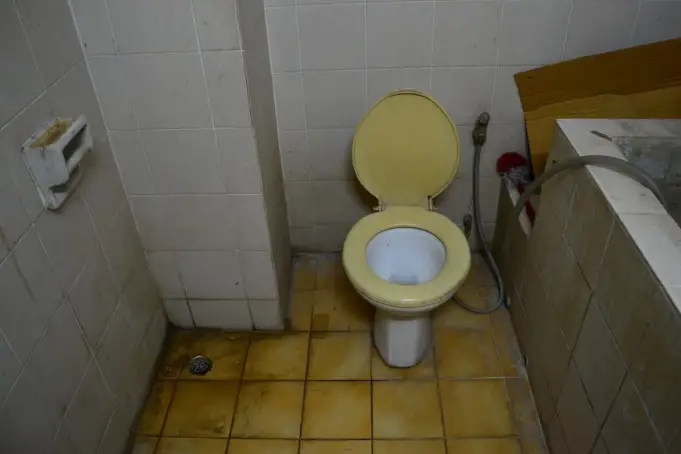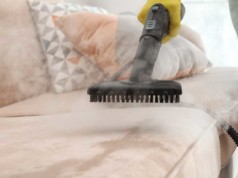If the thought of raw sewage flooding your home makes your stomach turn, you’re not alone. Not only is a sewage backup a nightmare to clean up and damaging to your home, it’s also hazardous to your health.
If your sewer backs up, call a plumber right away. While you’re waiting for them to show up, educate yourself on the causes of backups, what you can do about them and how to clean up properly to avoid health risks.
What Causes Sewage Backup?
There are many potential reasons for sewage backups, including:
- Root infiltration
- Structural defects
- Broken or leaky pipes
- Wet weather
- Flushing inappropriate items
- Flooding around the home
- Pipe blockages
A plumber can perform a sewer camera inspection to pinpoint the cause and help you fix it.
The Many Health Hazards of Sewage Backups
A sewage leak can potentially cause some serious health issues, especially if the problem isn’t fixed right away.
Gas Hazards
The most immediate health risk is sewer gas, and the risk could be potentially deadly. Sewage can emit a number of noxious gases, including:
- Methane
- Carbon dioxide
- Nitrous oxide
- Chlorine
- Sulfur dioxide
- Hydrogen sulfide
Any one of these gases can cause health issues in the people and animals exposed to it. Each can cause a lack of oxygen, which can lead to disorientation. The two main gases found in sewage are methane and hydrogen sulfide.
Hydrogen sulfide is not only highly flammable, but can also cause serious illness or death. Methane can asphyxiate people in the home. Even exposure to small amounts of the gas can cause unconsciousness or even death.
Dangerous Pathogens
Sewage contains dangerous pathogens that can cause illness or even death. According to the National Resources Defense Council, there are nearly 2 million cases of illnesses caused by sewage contamination each year.
Along with bacteria and viruses, sewage may also contain other toxic substances, like residuals from medications, pesticides, protozoan and fungi. Some of the most common bacteria found in sewage include:
- Acanthomoeba: Can cause infections in the eyes, throat, nose and ears.
- Coli: Can cause diarrhea, abdominal cramping and (rarely) death.
- Leptospirosis: Can cause vomiting and muscle aches.
- Heliobacter Pylpri: Can increase the risk of developing ulcers.
- Salmonella: Can cause diarrhea and abdominal cramping.
- Hepatitis: Can cause liver failure and liver infection.
Other disease-causing organisms found in sewage include:
- Rotavirus
- Giardia
- Pinworms
- Enteroviruses
- Campylobacter
- Shigella
- Crpyotsporidium
Exposure to any of these organisms can lead to illness and a trip to the emergency room. The risk is even higher when food comes in contact with raw sewage.
Chemicals
Along with bacteria and viruses, sewage may also contain harmful chemicals that can make household members sick. It’s common for homeowners to flush cleaning products, pesticides and other things down the toilet.
Unfortunately, these products are often damaging to pipes and can eventually become the cause of leaks. When this happens, the family is exposed to these chemicals, many of which are corrosive by nature.
Explosion or Electrocution
The greatest health risk of a sewer backup isn’t bacteria, viruses or disease – it’s explosion or electrocution. Many of the gases emitted by sewage are highly flammable. And even just a small amount of flooding in a home can put everyone at risk of electrocution. For these reasons, it is crucial to shut off the power and gas to the home as soon as the backup is detected.
How Can People Get Sick from Sewer Backups?
How is it possible to get sick from sewer backups? The organisms in sewage cause what are known as called fecal-oral diseases. These diseases are spread when people get feces in their mouths, typically from dirty hands. When a sewer backup occurs, fecal-oral diseases can be spread in two ways:
- Indirect contact with sewage by touching contaminated furniture, toys or other objects. They can also be spread by eating food that has touched sewage.
- Direct contact with sewage or a person with a fecal-oral disease.
These diseases affect the gastrointestinal tract, and can cause the following symptoms:
- Headaches
- Fever
- Cramps
- Nausea
- Diarrhea
- Vomiting
The incubation period for a fecal-oral disease is between one and three days.
How to Prevent the Risk of Contracting a Fecal-Oral Disease?
If you’re worried about contracting a fecal-oral disease from exposure to sewage, there are steps you can take to reduce your risk, such as:
Washing Hands
Keeping your hands clean is crucial after a sewage backup. Hands should be washed each time you come in contact with the flooded area, before eating and after using the toilet.
To wash your hands properly:
- Use liquid soap.
- Wash with warm running water.
- Dry hands with paper towels and dispose of them immediately.
- Lather hands for at least 20 seconds before rinsing.
Following Sanitizing Procedures
Sanitizing the home after the backup is crucial to stopping the spread of bacteria and keeping your family safe. Appropriate sanitizing procedures include:
- Throwing out fabric items that cannot be laundered, like pillows and stuffed animals.
- Using dehumidifying equipment.
- Cleaning the area with a diluted bleach solution (8 tbsp. of bleach for every gallon of water).
Getting Rid of Contaminated Items
Any items that cannot be sanitized or laundered should be disposed of properly. These items should be placed in leak-proof bags and labeled as “contaminated.” If you’re getting rid of larger items, like furniture or rugs, be sure to also label these items as contaminated. These labels will prevent others from trying to salvage these items and putting their health at risk.
Preventing Sewage Backups
Sewage backups can and do happen to even the most diligent of homeowners. But there are steps you can take to reduce your risk of these events happening. These steps include:
- Install a sump pump to remove water that collects in the basement or under your home.
- Waterproof your home’s foundation and seal cracks in the foundation.
- Remove sinks, washing machines, toilets and other appliances in the basement that are prone to backups.
Even when taking these preventative steps, backups can still happen. If they do, it’s time to call a plumber.










